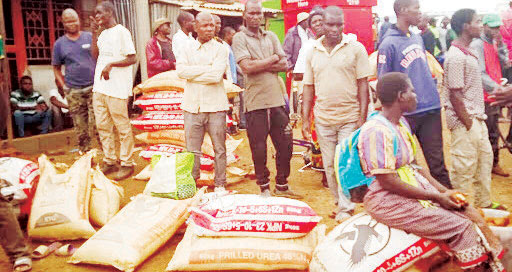Africa-Press – Malawi. Malawi has been singled out as the only sub-Saharan African country to consistently meet the political commitment to allocate at least 10 percent of the national budget to food and agriculture.
This is according to the Food and Agriculture Organisation (Fao), which has hailed the country for honouring its commitments under the Maputo Declaration
Notably this year, the agriculture sector has been allocated K284.4 billion which is 2.8 percent of GDP and 14.3 percent of the total budget. According to a budget statement presented to Parliament recently by Finance Minister Felix Mlusu, the sector is projected to grow by 6.2 percent in 2021.
In its recent report titled Public Expenditure on Food and Agriculture in sub-Saharan Africa: Trends, Challenges and Priorities, Fao says the country has fared well in honouring its commitment to investing heavily in the sector.
It says studies between 2004 and 2018 found that few countries have met the 10 percent Maputo target, despite a renewed commitment in 2014 through the Malabo Declaration.
The research results show that, on average, 21 percent of budgets devoted to food and agriculture in the region were not spent. The study also shows that this was often due to either funds being disbursed too slowly or complications in project implementation.
In an interview, agriculture expert Tamani Nkhono Mvula, however, said despite committing over 10 percent to the sector, the allocation does not tally with growth strides registered.
“The most important thing is the growth of the agriculture sector; if there is an allocation of at least 10 percent of the budget, then that must translate to the expected six percent growth of the agriculture sector, and that has not happened in Malawi,” Mvula said.
On average, agriculture has been growing at about 2.6 percent over the past 20 years. Mvula said factoring in the 2.7 percent annual population growth rate, in terms of food output, the sector is not growing at the desired pace.
“Simply put, the 10 percent of the national budget that we are allocating to agriculture sector is not bringing any change at all on the ground,” Mvula said. He faulted the country’s obsession with subsidies, while other countries with higher budgets were using their resources efficiently.
In the 2021/22 National Budget, the Treasury allocated K142.0 billion to the Affordable Inputs Programme which is projected to achieve an outreach of about 3.5 million farming families.
The amount is about half of the K284.4 billion allocated to the entire agriculture sector to cater for wages and salaries, operations and development projects.
Civil Society Agriculture Network Chief Executive Officer Pamela Kuwali said the country needed to formulate adequate budgets and impactful programmes in agricultural resilience in order to promote access to profitable markets. Agriculture remains the mainstay of the Malawi economy.






